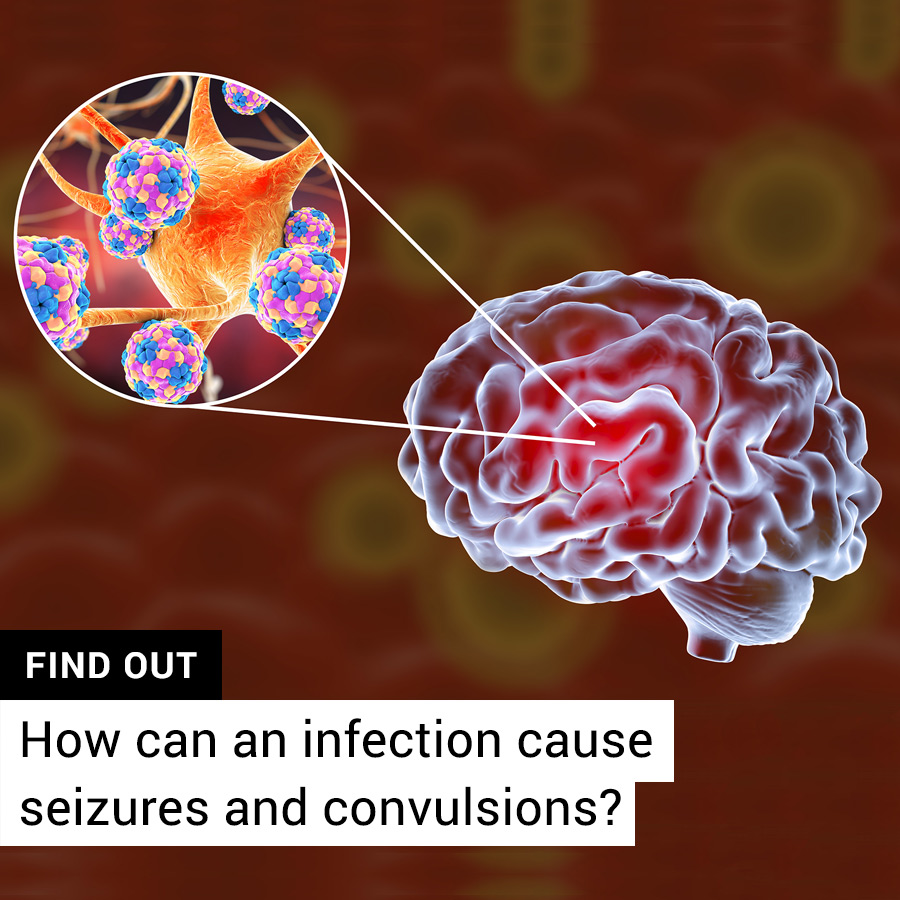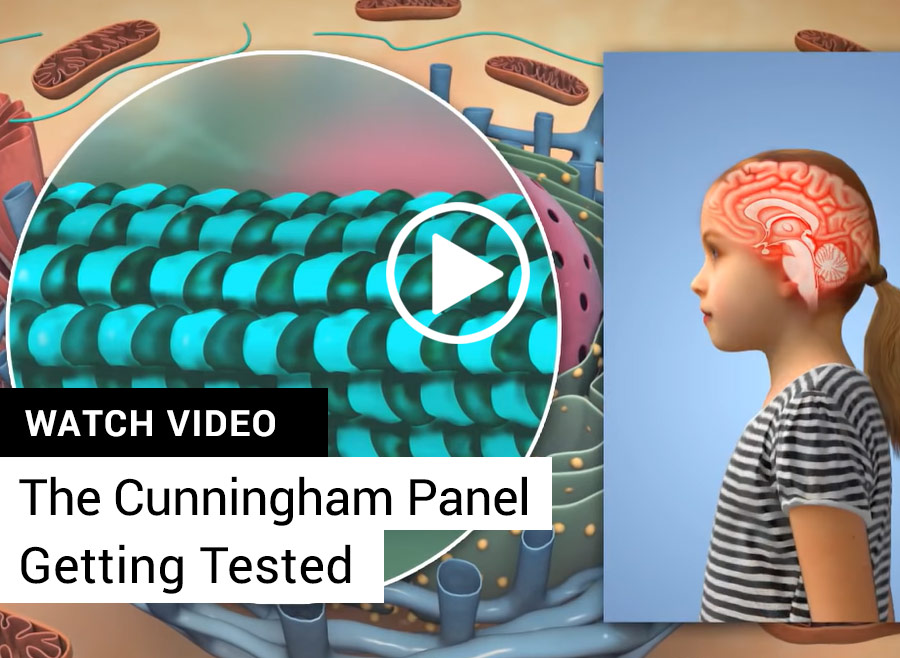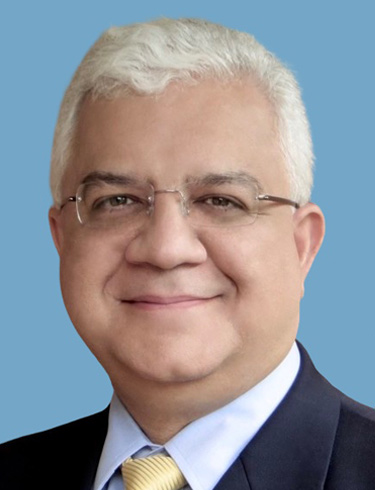Why am I still having seizures while on medication?
The cause of epilepsy and seizures is often unknown. A number of factors may be involved including genetics, brain structure abnormalities, brain injury or tumor, toxins, metabolic imbalances, infectious diseases, or immune system abnormalities.
Autoimmunity and inflammation are also known to play an important role in the onset of seizures. In fact, people with autoimmune disorders are at a greater risk of developing seizures.
Sudden onset of seizures are a common symptom in autoimmune disorders 2, such as multiple sclerosis (MS), diabetes mellitus, celiac disease, thyroid disease, and systemic lupus erythematosus (SLE). 3
Autoimmune dysfunction can trigger seizures
The latest research indicates that autoimmune encephalitis (brain inflammation) syndromes, associated with specific antineuronal antibodies, can cause seizures, as well.
In a subset of patients, “the binding of the autoantibodies to extracellular antigens directly causes neuronal dysfunction.” 4 This disruption in neuronal functioning can trigger the sudden onset of seizures.
“Autoimmunity is increasingly being recognized as a cause of epilepsy,” 5 particularly in people who are still having seizures while on anti-convulsant medication. “Perhaps the failure of new antiepileptic drugs is because some of these patients have autoimmune-mediated epilepsy.” 6
Autoimmune encephalitis, which refers to a broad category of syndromes involves a misguided attack of autoantibodies against specific receptors in the brain. In response to an infection or environmental stressor, the immune system produces antibodies that mistakenly attack (either bind to or block) various receptors in the brain. This can disrupt neuronal cell signaling and cause inflammation in the brain, potentially triggering the onset of neurologic (seizures) and/or psychiatric symptoms.
“In recent years, immune cells producing inflammatory molecules were detected in surgically resected brain tissue from patients with pharmacoresistant [drug resistant] epilepsies without an autoimmune etiology.” 7
If a person is still having seizures while on standard medication, check with your doctor because there could be an underlying autoimmune dysfunction and inflammation that may need to be treated.
Importance of diagnosing autoimmune seizures
If you’re still having seizures while on standard medication, identifying if there is an autoimmune basis is important, since treatment typically involves immunomodulating therapy.
And if identified and treated, autoimmune seizures may often be completely resolved. One study reports, 81% of patients had “significant improvement in seizure status” and 67% achieved “seizure freedom, a majority of whom were antiepileptic drug [AED] resistant.” 8
“If you diagnose autoimmune epilepsy in these patients early and treat them, you can actually cure them,” says lead author Dubey. 9
“The identification of an immune basis in AE [autoimmune epilepsy] is very important because early diagnosis and immunotherapy may actually limit the duration or severity of the illness and could improve the outcome of epilepsy recovery.” 8
According to the Epilepsy Foundation, a person’s medical and family history can provide clues as to whether they may suffer from autoimmune-induced seizures. These clues include: seizures that start in adulthood, seizures that have no known cause, a personal or family history of autoimmune disorders, new onset of seizures that do not respond to anti-epileptic medications. 10
Autoimmune seizures typically start in adulthood and do not respond to medication. “In fact, only 1 out of 8 people with autoimmune seizures will respond to anti-seizure medication alone.” 10
- Dubey D, Alqallaf A, Hays R, et al. Neurological Autoantibody Prevalence in Epilepsy of Unknown Etiology. JAMA Neurol. 2017;74(4):397–402. doi:10.1001/jamaneurol.2016.5429 https://jamanetwork.com/journals/jamaneurology/fullarticle/2599939
- Quek AM, Britton JW, McKeon A, et al. Autoimmune epilepsy: clinical characteristics and response to immunotherapy. Arch Neurol. 2012;69(5):582–593. doi:10.1001/archneurol.2011.2985 https://www.ncbi.nlm.nih.gov/pmc/articles/PMC3601373/
- Vincent A., Crino P. Systemic and neurologic autoimmune disorders associated with seizures or epilepsy. Epilepsia. 2011; 52(3): 12-17. https://doi.org/10.1111/j.1528-1167.2011.03030.x https://onlinelibrary.wiley.com/doi/full/10.1111/j.1528-1167.2011.03030.x
- Damato V. Diagnostic algorithms in autoimmune encephalitis. Neuroimmunology and Neuroinflammation 2016;3:93-97. 10.20517/2347-8659.2015.43 https://nnjournal.net/article/view/1428
- Bauer J, Becker AJ, Elyaman W, et al. Innate and adaptive immunity in human epilepsies. Epilepsia. 2017;58 Suppl 3(Suppl Suppl 3):57–68. doi:10.1111/epi.13784 https://www.ncbi.nlm.nih.gov/pubmed/28675562/
- Quek AML, Britton JW, McKeon A, et al. Autoimmune Epilepsy: Clinical Characteristics and Response to Immunotherapy. Arch Neurol. 2012;69(5):582–593. doi:10.1001/archneurol.2011.2985 https://jamanetwork.com/journals/jamaneurology/fullarticle/1149705
- Vezzani A, Lang B, Aronica E. Immunity and Inflammation in Epilepsy. Cold Spring Harb Perspect Med. 2015;6(2):a022699. Published 2015 Dec 18. doi:10.1101/cshperspect.a022699 https://www.ncbi.nlm.nih.gov/pmc/articles/PMC4743070/
- Fang Z, Yang Y, Chen X, et al. Advances in Autoimmune Epilepsy Associated with Antibodies, Their Potential Pathogenic Molecular Mechanisms, and Current Recommended Immunotherapies. Front Immunol. 2017;8:395. Published 2017 Apr 25. doi:10.3389/fimmu.2017.00395 https://www.ncbi.nlm.nih.gov/pmc/articles/PMC5403900/
- MedPage Today. Nyberg K. Identification and Treatment of Autoimmune Epilepsy. https://www.medpagetoday.com/resource-centers/contemporary-advances-epilepsy/identification-and-treatment-autoimmune-epilepsy/2088
- Epilepsy Foundation website. https://www.epilepsy.com/

If a person is still having seizures while on standard medication, check with your doctor as there could be an underlying autoimmune dysfunction and inflammation that may need to be treated.
Learn more about how infections can trigger neuropsychiatric symptoms

Cunningham Panel™ helps identify an autoimmune disorder in child initially diagnosed with schizophrenia
Researchers describe a complex case involving a 15-year-old girl, who abruptly developed multiple neurologic and psychiatric symptoms.

The association between streptococcus pyogenes and tics/OCD
In this book chapter, Dr. Madeleine Cunningham explains the association between Group A strep and the onset of tics and/or OCD and their clinical manifestations in children with the autoimmune neuropsychiatric disorder, PANDAS.

Childhood infections can increase risk of mental illness in kids
Nationwide study finds both mild and severe infections can increase risk of mental disorders in children and adolescents..









